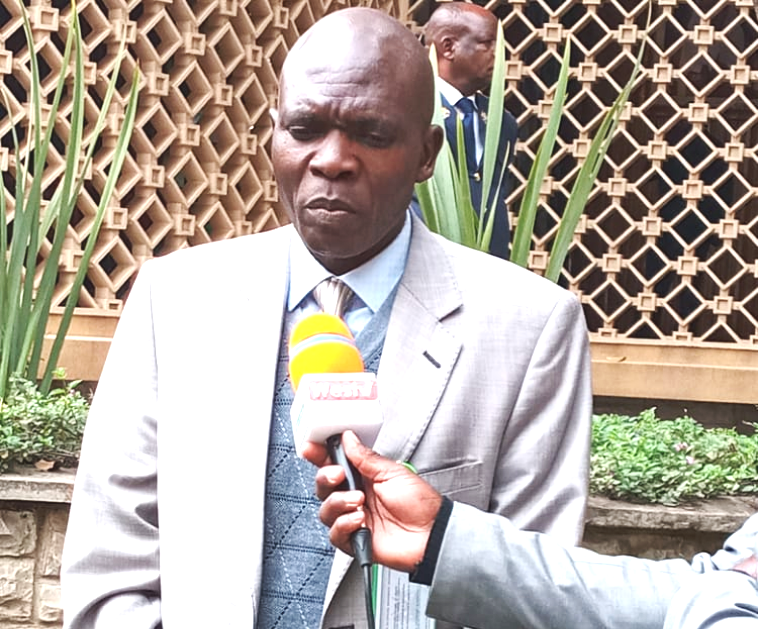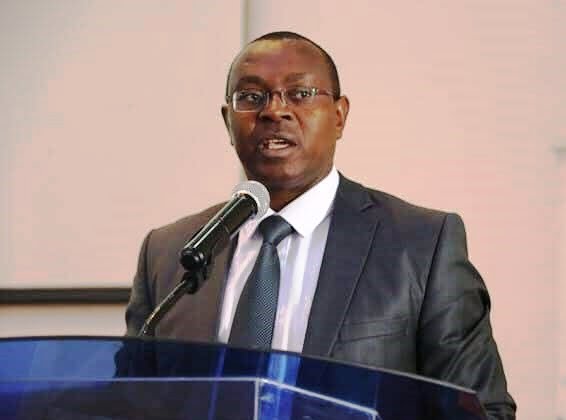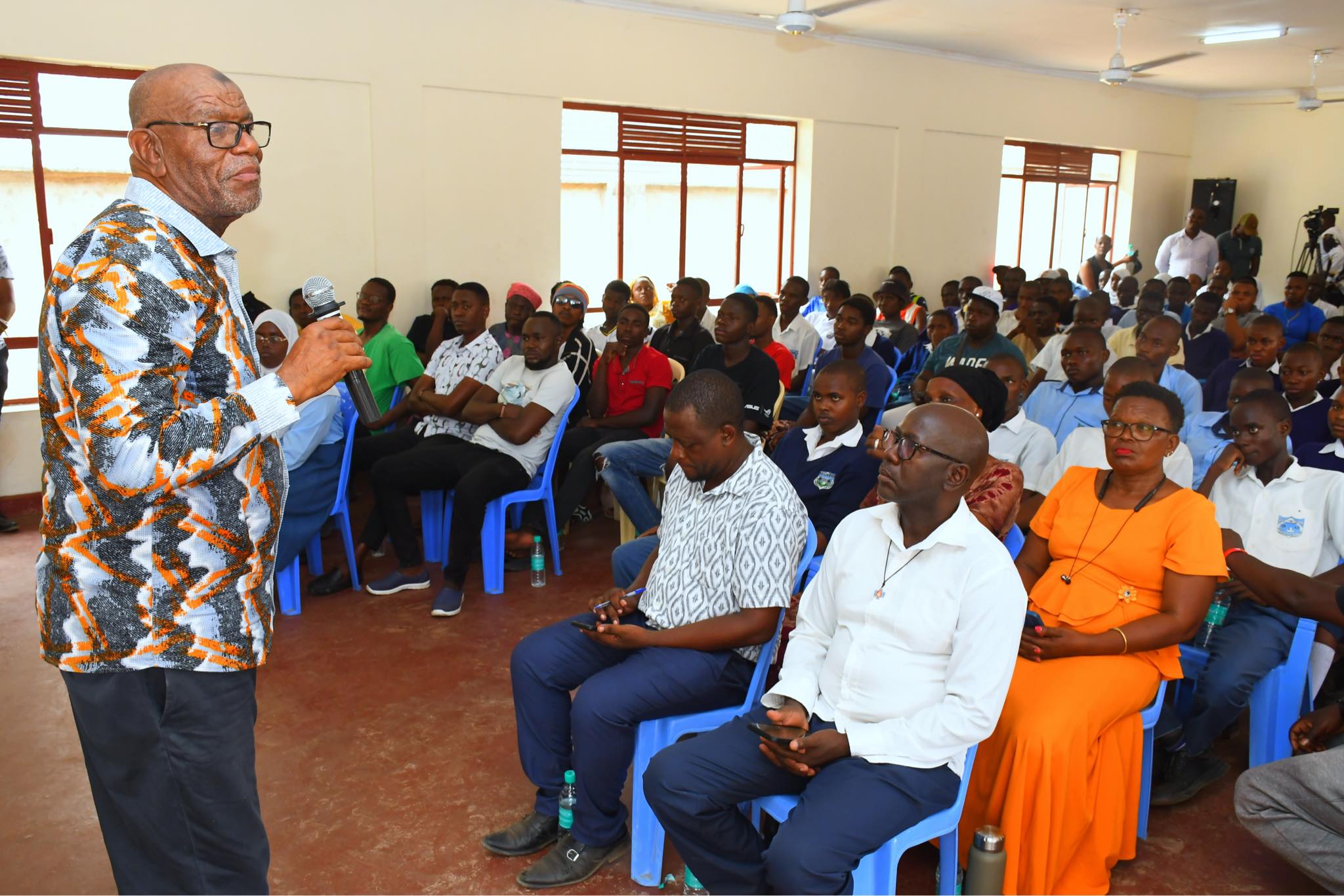Bureaucracy in reporting examination malpractices, teacher promotions and early exposure to the second session papers may have played a key role in examination cheating in the 2022 Kenya Certificate of Secondary Education (KCSE) examination.
This damning revelation is contained in a report compiled by the National Assembly’s Departmental Committee on Education, having gone round the country to understand what really happened around the examination period.
Tabled in the National Assembly on October 5, 2023 by committee chairperson Julius Melly, it came scarcely 3 weeks to the 2023 examinations, which will be managed under the same conditions.
The timetable released earlier by the Kenya National Examination Council (KNEC) showed that the exam kicked off on October 23, 2023 with foreign languages and practical papers.
According to the report, various stakeholders raised concerns regarding the bureaucracy involved in reporting examination malpractices, where chief examiners (CE) and their assistants thwarted efforts to unearth examination irregularities.
It is said that many examiners detected cheating during marking but ignored it since upon identifying the irregularities, the cases were shelved by their seniors.
Further, writing reports consumes a lot of time and does not require colleagues to stop marking. The same report writers are discouraged by their seniors.
During one of the public hearings in Embu, the committee learnt that markers had observed similar answers that could not pass without scrutiny.
In fact, all students wrote similar wrong answers in one examination centre. History and Government Paper II Question 23 required candidates to identify three groups that cannot contest for political office in Britain, and all candidates gave the answer as Neo-British citizens instead of Non-British citizens.
The activities at the marking centres were also centrally to be blamed for the massive irregularities that were the signature of the 2022 KCSE.
Integrity of markers, marking schemes, award of marks and moderation come out on top of the mess as they were shrouded in secrecy.
According to the report, a chief examiner expressed frustration at being unable to control data entry in marking stations, which he said compromised the quality of results.
The CEs also noted that in some instances, raw scores differed with the actual scores obtained by a candidate.
The report notes further that the data clerks who entered the marks were not vetted and their modus operandi was questionable as relating to the integrity of examinations.
In regard to training, a respondent pointed out that the examiners were adequately prepared to mark but not to detect and report irregularities.
The inquiry was further informed that any reported case of malpractice was watered down by CEs and KNEC officers who gave weak evidence in courts of law.
A total of 30,592 examiners who were spread across 35 marking centres participated in the 2022 KCSE marking exercise.
Delayed payment
A former examiner informed the committee that the areas identified as marking centres were in poor condition, and that the examiners were not commensurately remunerated and payments were delayed, which in the long-run affected productivity and thus the credibility of the results.
“The committee observed that at the marking centres, examiners were subjected to long marking hours, affecting their productivity and the accommodation facilities were in poor and deplorable conditions, demotivating them. Moreover, the examiners were not paid in a timely manner, for instance the 2022 examiners were paid nine months after the marking exercise,” reads the report.
Teacher promotion
Those who presented their views to the committee also complained about awards such as Head of State Commendation (HSC) and normal promotions by Teachers Service Commission (TSC), saying pegging them on academic performance of schools results in teachers using underhand methods to raise performance.
Other factors such as infrastructure development and stabilizing unsteady schools are said not to matter when it comes to promotions.
Easy access
Early exposure of the examinations materials by centre managers, who include head teachers and principals, supervisors and invigilators, was strongly brought out, with difficulties in accessing remote areas of the country creating circumstances conducive for cheating.
Afternoon examination papers were greatly affected as they were easily accessed by various schools and learners. Answers were prepared by teachers well in advance, explaining why the afternoon papers were better performed than the morning ones.
It was also noted that there was a huge gap in examination monitoring and supervision, with respondents indicating that in most cases examination monitors only visited schools along the highways and in towns.
Other avenues for malpractices include use of ICT, poor recruitment process and minimal capacity building of KNEC contractual staff.
Schools also bribed officials in KNEC to aid in cheating after charging parents some levies. It is however not clear whether parents knew where the money was going.
There was also use of mobile phones among candidates in some centres, as well as unauthorized written materials in their possession.
They also observed that candidates who were hospitalized, or had recently given birth, were compelled to sit the examinations from hospital beds, and that some candidates were forced to cheat to meet societal expectation, KCSE being a high-stakes examination.
Besides, marking centres were centralized within Nairobi and its environs, resulting in overcrowding and deplorable conditions for markers.
Overall take
According to the committee, the Directorate of Criminal Investigations (DCI) handled a total of 68 cases of malpractice, with 44 still pending, 17 before court, one with a warrant of arrest and six already finalized.
It also emerged that some principals influenced the choice of examination officials to work in their schools.
Shockingly, the MPs observed that the multi-agency approach involving the Ministry of Interior and National Administration, the DCI and the Communications Authority of Kenya (CAK) in the management of examination was not effective in curbing examination malpractices as intended.
Further, they noted that there was no adherence to KNEC’s examination guidelines and regulations, for example the requirement that a candidate involved in malpractice should not be allowed to continue with the next examination. This did not happen.
By Roy Hezron
Get more stories from our website: Education News
To write to us or offer feedback, you can reach us at: editor@educationnews.co.ke
You can also follow our social media pages on Twitter: Education News KE and Facebook: Education News Newspaper for timely updates.
>>> Click here to stay up-to-date with trending regional stories






